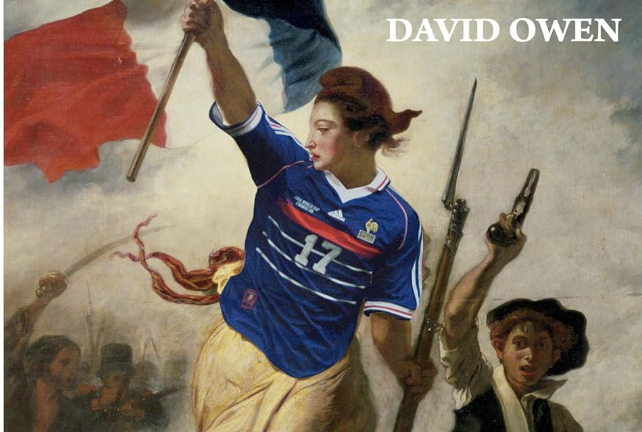In an extract from his new book Aux Armes! Sport and the French – an English perspective, Insideworldfootball columnist David Owen highlights the birth place of the march towards the all-conquering World Cup.
The 1924 Paris Olympics, in Europe’s most captivating capital city, cemented the air of permanency the International Olympic Committee had begun to acquire having survived the Great War. The Games allowed Pierre de Coubertin, the Modern Olympic founder, to bask in the increasingly bright glow cast by his creation; this after having been sidelined by the French State 24 years earlier when the Olympics were first staged in the city of his birth. The Games also imbued the city that had become a magnet for artists and avant garde thinkers with more and better sports facilities.
And Paris 1924 was where the sport of association football began its long, irresistible march to global domination.
The new Colombes stadium – built on the site of an existing sports ground that had once been a racecourse – could not accommodate all those who flocked to the suburbs for the final of the 22-team competition. (This was destined to remain the biggest international football tournament by number of participating countries until 1952.)
In the words of the New York Times, the stadium “was filled to its capacity of 60,000 persons, while several thousand more clamoured futilely on the outside for admission”. This was particularly impressive as the finalists were two relatively small countries – Uruguay, who would go on to dominate international football for the rest of the decade, and Switzerland. The South Americans had earlier disposed of the host nation in front of another big Colombes crowd by the emphatic margin of five goals to one.
At almost 1.8 million francs, football accounted for just under one-third of ticket receipts generated by the Games. Athletics – just under 1.6 million francs for the competition later given the big-screen treatment in Chariots of Fire – was the only other sport in the same league for popularity.
Not everything about these Games was judged a success, partly because expectations were pitched so high. International sport was being portrayed as a vehicle for helping to ensure that humanity did not embark on another ruinous global conflict.
In April, with the clock ticking down towards the start of the Games, the New York Times made the ringing assertion that “Not since the beginning of time has sport taken so great a hold on the imagination of all nations”. The newspaper continued: “Observers say the world has entered a golden age of athletics, partly in reaction from the tragic strain of the great war. Philosophers say the peoples of the earth may yet be drawn into accord through the common bond of sport.”
It is only fair to underline that, as far as the Olympics were concerned, this “common bond of sport” still excluded Germany. Nevertheless, it seemed symbolic in the circumstances that some of the American team were set to sail to Cherbourg aboard a former troop-ship.
What actually happened was that the growing importance accorded to sporting success sparked episodes of nationalistic friction involving both athletes and spectators. These started at the rugby union final on the 18th of May, at which the USA beat hosts France in a manner that provoked anger in the stands.
“Wild Olympic rugby,” screamed a headline in the Belfast Telegraph above an article giving details of what was by all accounts a rough match. Spectators are reported to have “loudly manifested their displeasure against what they termed the “brutality” of the Americans”. When an American in the stands “contradicted” a French spectator, he is said to have been “knocked unconscious” and “removed on a stretcher to hospital”…
Other Olympic sports affected by outbreaks of unruliness or worse included boxing, fencing, water polo and tennis. Much of what occurred would have elicited little comment in our own increasingly nationalistic era.
By the end of the Games, though, a storm was ready to break. Some of the fiercest criticism appeared in The Times, voice of the British establishment. “To write this article is like delivering the funeral oration of the Olympic Games,” began a piece by the newspaper’s special correspondent in Paris under the headline, “Olympic Games Doomed”…
De Coubertin shrugged such criticism off, insisting that the Games had been a “power for good” since their renewal. If he became convinced that they bred discord and animosity among nations, the French baron asserted, “I would recommend that they be abandoned”.
A century on, and the fruit of his life’s work is still with us.
· Aux Armes! Is published by Fairfield Books and can be purchased here:
David Owen worked for 20 years for the Financial Times in the United States, Canada, France and the UK. He ended his FT career as sports editor after the 2006 World Cup and is now freelancing, including covering the 2008 Beijing Olympics, the 2010 World Cup and London 2012. Owen’s Twitter feed can be accessed at www.twitter.com/dodo938. Contact him at moc.l1743547324labto1743547324ofdlr1743547324owedi1743547324sni@n1743547324ewo.d1743547324ivad1743547324

